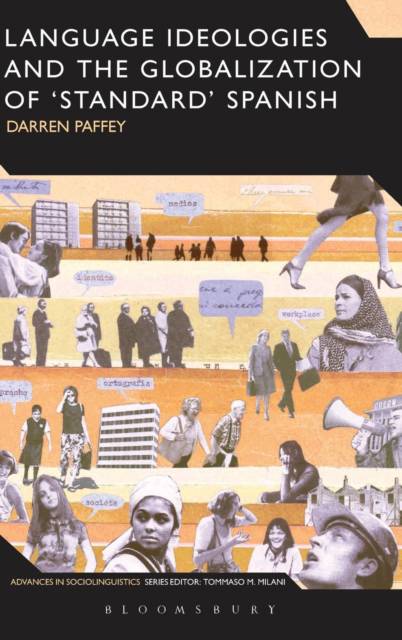
- Afhalen na 1 uur in een winkel met voorraad
- Gratis thuislevering in België vanaf € 30
- Ruim aanbod met 7 miljoen producten
- Afhalen na 1 uur in een winkel met voorraad
- Gratis thuislevering in België vanaf € 30
- Ruim aanbod met 7 miljoen producten
Zoeken
Language Ideologies and the Globalization of 'Standard' Spanish
Darren Paffey
€ 390,45
+ 780 punten
Uitvoering
Omschrijving
This book examines how language ideologies are manifested in newspaper media. Using the Spanish press as a case study it considers how media discourse both from and about the Real Academia Española constitutes a set of 'language ideological debates' in which the institution represents a vision of what the Spanish language is and what it should be like.
Paffey adopts a Critical Discourse Analysis approach to a large corpus of texts from Spain's best-selling daily newspapers, El País and ABC. More generally, the book sheds light on how institutions produce and maintain visions of 'standard language' in the contemporary context. A global language, such as Spanish, is by nature more widely used outside of the nation state in question than in it. The book covers recent research on language ideologies, standardization and CDA and considers the application of these to three core discursive themes: language unity and a concept of a 'panhispanic' speech community; the RAE's construction of its authority; and institutional ideologies and management of language on a global scale.Specificaties
Betrokkenen
- Auteur(s):
- Uitgeverij:
Inhoud
- Aantal bladzijden:
- 224
- Taal:
- Engels
- Reeks:
- Reeksnummer:
- nr. 60
Eigenschappen
- Productcode (EAN):
- 9781441187406
- Verschijningsdatum:
- 8/11/2012
- Uitvoering:
- Hardcover
- Formaat:
- Genaaid
- Afmetingen:
- 163 mm x 236 mm
- Gewicht:
- 453 g

Alleen bij Standaard Boekhandel
+ 780 punten op je klantenkaart van Standaard Boekhandel
Beoordelingen
We publiceren alleen reviews die voldoen aan de voorwaarden voor reviews. Bekijk onze voorwaarden voor reviews.











